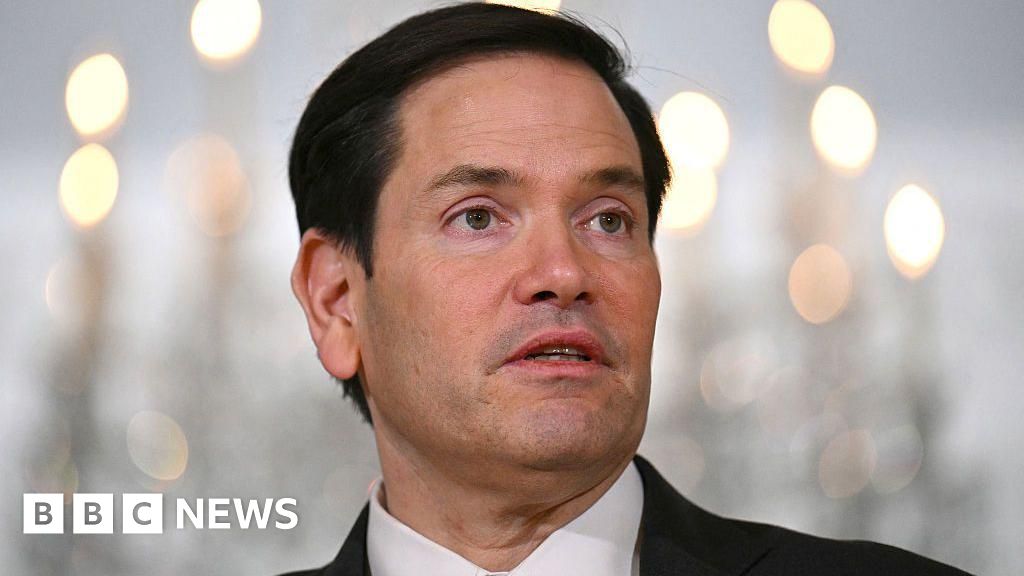U.S. Secretary of State Marco Rubio’s Call to China: The Strait of Hormuz at Risk
U.S. Secretary of State Marco Rubio has recently made headlines by urging China to intervene and prevent Iran from potentially closing the Strait of Hormuz. This channel is not just any shipping route; it’s one of the most crucial arteries for the global oil supply, and any disruption there could send shockwaves through international markets. Rubio’s comments follow a report from Iran’s state-run Press TV, which revealed that Iranian Parliament had approved a plan to close the Strait, pending confirmation from the Supreme National Security Council.
The Economic Stakes Involved
The Strait of Hormuz is a vital passage for approximately 20% of the world’s oil supply. Major oil-producing nations in the Middle East rely on this passage to transport their resources. A closure or any significant disruption would likely lead to soaring oil prices, impacting economies worldwide. Indeed, oil prices have already reached their highest levels in five months following U.S. military actions against Iranian nuclear sites, underscoring how fragile the situation is.
Rubio has emphasized that the repercussions of a closure would predominantly affect countries relying heavily on oil transiting through this route. "If they [close the Straits]… it will be economic suicide for them. And we retain options to deal with that," he stated during an interview on Fox News. The gravity of this situation is amplified by China’s unique position as the world’s largest buyer of Iranian oil, with imports surpassing 1.8 million barrels per day last month alone, according to ship tracking firm Vortexa.
The Role of China and Regional Alliances
China’s relationship with Iran is multifaceted, encompassing economic, political, and strategic dimensions. As the primary buyer of Iranian oil, China’s involvement becomes crucial in this standoff. Marco Rubio’s public appeal for Beijing to persuade Tehran reflects the interconnectedness of international relations and the economic implications tied to oil production and transportation.
Other Asian powers, including India, Japan, and South Korea, also significantly depend on the oil that travels through the Strait of Hormuz. The potential disruption of this route could lead to profound economic consequences for these nations, heightening the stakes involved.
Habits and Risks Surrounding Oil Prices
The ripple effects of rising oil prices extend far beyond just the gas pump. Higher crude oil costs can affect everything from the price of groceries to transportation costs. Analysts are keenly monitoring the situation, as further escalation could lead to unprecedented volatility in oil markets. The cost of Brent crude recently jumped to $78.89 a barrel, revealing how sensitive the market is to geopolitical tensions.
Energy analyst Saul Kavonic has pointed out that the U.S. has positioned itself defensively in the region in preparation for potential Iranian retaliation. The precarious balance dictates that while the U.S. may feel secure, any conflict could lead to severe upward pressure on global oil prices.
Iran’s Dilemma
Experts are questioning Iran’s strategy in this embroilment. Energy analyst Vandana Hari notes that "Iran has little to gain and too much to lose" by attempting to close the Strait of Hormuz. Such aggressive moves could alienate neighboring oil-producing countries in the Gulf, as well as prompt backlash from China, which has significant economic interests tied to the region.
Iran’s geopolitical calculations are complicated as tensions continue to rise. Although Tehran may feel emboldened by its regional alliances, the risk of worsening relations with key markets could lead to long-term repercussions.
U.S. Military Involvement and Regional Tensions
The situation escalated further over the weekend when President Donald Trump stated that the U.S. had "obliterated" critical aspects of Iran’s nuclear program through military strikes. However, the full extent of the damages remains unclear, with the UN’s nuclear watchdog unable to assess the impact on the fortified Fordo nuclear site.
Trump’s warning to Iran that they would face "far worse" consequences if they did not abandon their nuclear ambitions only adds fuel to an already volatile fire. In response to U.S. actions, Beijing has voiced its concerns over the potential for escalating conflict, calling for an immediate ceasefire to avoid pushing the situation beyond control.
International Reactions to the Deteriorating Situation
China’s government has been vocal about the situation, asserting that U.S. strikes have damaged Washington’s credibility and emphasizing the need for restraint among all parties involved. Ambassador Fu Cong has urged against escalating tensions, a sentiment echoed by the Chinese state-run newspaper, Global Times. They have argued that U.S. involvement is complicating and destabilizing the already tense environment in the Middle East.
With geopolitical interests colliding, the situation surrounding the Strait of Hormuz remains fluid, generating a need for continuous monitoring. The potential for conflict looms large, and the intertwining energy dependencies complicate the responses of nations involved.


